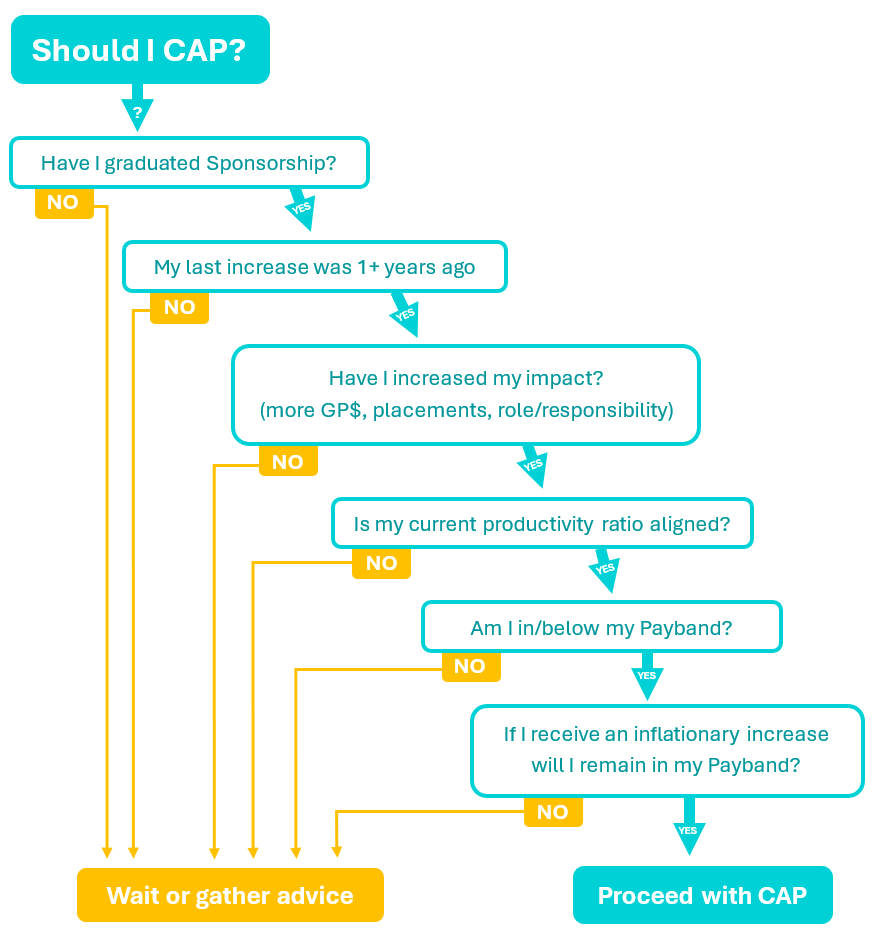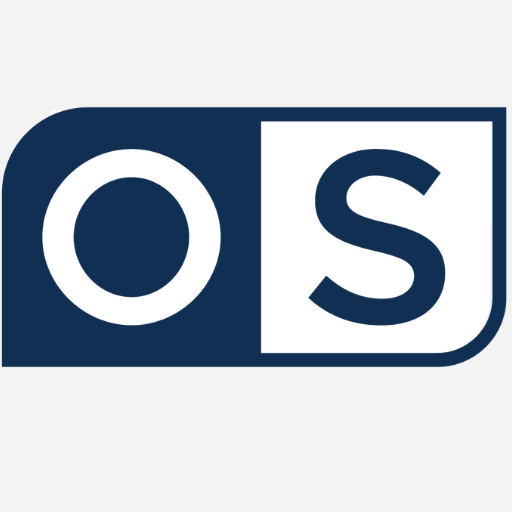Compensation Advice Process
Stewards: Courtney Gakman & Kelsey DeGraaf
Welcome to Raise’s Compensation Advice Process, our own RaiseOS compensation practice, developed and tested by your own co-workers.
Reinventing Organizations notes three compensation patterns that are common in self managed organizations:
- peer-based processes and self-set salaries
- no incentives, but company-wide bonuses
- reduced compensation inequality
We think those practices seek to manage a set of polarities:
- Peer-based processes and self-set salaries allow us to manage a polarity between objectivity (the facts) and subjectivity (individual perspectives and interpretations); good comp advice processes consider the facts and multiple perspectives; they don’t “make a case” or engage in negotiation – there is no need for that because the decision maker is you.
- No incentives, but company-wide bonuses manages individual and collective needs by combining variable individual salaries with collective incentives; it also considers simplicity (simple salaries, no crazy formulas to distract people from doing their best for the company) and complexity (mechanisms that protect the whole in bad times) ask about the Protect the Downside plan to hear more about this.
- Reduced compensation inequality considers the human value and the needs of every individual with the market-value and company contribution made by each; pay transparency and reporting key compensation metrics may in future help us manage this polarity.
Additionally, it’s our experience that there’s a polarity between demonstrated contribution and potential contribution, where in our comp advice processes, we have seen and exercised a bias for demonstrated contribution, i.e. comp increases not on increase of role(s) but on increase of contribution.
Here’s our hope: manage these polarities well so that you feel fairly & happily compensated; “take money off the table” and instead focus on doing your best and most meaningful work, for yourself and the organization.
Courtney Gakman
April 2021
CAP Resources
Should I start a CAP?

- CAP Template
- CAP Glossary – curious about compensation terms?
- PTD Calculator
- Paybands (Sharepoint / Raise login required)
If, for whatever reason, you are not comfortable setting your own compensation, you can opt out of the default CAP process.
To begin the opt-out process, select someone you trust to make your CAP decision on your behalf, and ask them whether they are willing to play that role for you. Typically, designers will be those who have significant experience handling compensation decisions (their own and/or others’). Confirm in an email with the designer that you would like them to take on that role. From there, the designer should take whatever steps they need in order to make an informed decision, which could include everything from the full CAP process to a simpler review of your contribution alongside relevant internal/external comparables. Once the designee has reached their decision, they should confirm with you in writing and send the decision to the People & Culture team, via email HR@raiserecruiting.com. A CAP peer mentor can support you and your designee through the opt-out CAP process.
Compensation Advice Process Steps
Select someone from this list:
Senior CAP Peer Mentors – Abhishek Sahay, Anurag Jani, Ayesha Khan, Courtney Gakman, Gillian Levi, Joanna Briedenhann, Kate Siklosi, Kelsey DeGraaf, Sagar Chatterjee, Tejas Shah, and Tiffany Bell.
CAP Peer Mentors – Adreen Murray, Akansha Singh, Ally Baldemor, Cassandra Sturk, Esfer Fernando, Grishma Hegde, Jebas Christadoss, Jessi McDonald, Kavya Cherukuri, Kevin Newell, Mary Patrick, Queen Gomez, Richard Welch, Rustann Steele-Yeo, Sanad Shahrour, Sophia Shefali, Sourjya Chatterjee, Surbhi Dhoble, Vishnu Mohan.
Do I need to gather advice only? Or do I need to seek consent?
- Advice Process: If the CAP is within the COLA % and/or you’ll remain within your Payband, best practice is to ensure a team lead with financial literacy on the team’s budgets & finances are included in your CAP.
- Consent Process: If the CAP is over the COLA % and/or you’ll move outside your Payband, please email finance@raiserecruiting.com to connect with a finance member as an advisor in your proposal.
A note for advisors: you are also welcome to call the peer mentors if you need some help giving advice.

Use these questions to write a clear, concise and cohesive Loomio post. Once you’ve prepared your self-assessment and ask your peer mentor to review it.
- Compensation. How are you compensated today? (Total Comp = base, PTD, COLA, 13th month, and commission)
- How did you come to be compensated that way?
- Is your compensation aligned with your current role and contribution?
- Contribution. Why do you think you deserve an increase? Describe and quantify your contribution(s) to the company (effort & achievement):
- Growth & Development. Reflect on areas for personal growth/development and areas in which you did not have the contribution you could have had. Reflect on the knowledge/skills/abilities that would make you more valuable. Can you see any arguments against taking an increase or against taking it now?
(In Orange compensation reviews, your job is to advocate for yourself and your boss advocates for the organization. In Self-Managed compensation reviews, you wear both hats. In this section, you have a chance to show that you are thinking about both perspectives: what is good for you and what is good for others/the organization.)
- Market, Replacement & Internal Value: In the following three sections, show the evidence you have about your market value (your expected earnings in the labour market) and replacement value (the likely cost to the business to replace you with another person/solution). You can consider sources such as external and internal comparators, salary surveys, competing offers, former positions, etc.
- Market Value. What are you, your skills, and your experience worth on the job market? What is the value of “your resume” in the current labour market? If you were to leave the company, what job/salary could you get? Have you received offers for similar jobs? Ensure you compare “apples to apples” looking at roles with similar skills, qualifications, experience, industry, and location requirements. The internet is your friend here. The Glossary gives some suggested sites to check.
- Replacement Value. Time to put your manager cap on. If you were to leave the company, how would the company replace you? What sort of resource would you have to hire (or shift internally) and what would be their salary? Provide data, evidence, explanations, etc.
- Internal Value. Who are your best internal comparators? Who does a similar job to you, has similar skills to you, or provides similar value as you do? Ask your peer mentor or relevant advisor to collect salary information related to those comparators (e.g., ranges, averages, but not names)
- Percentage Increase. Based on your self-assessment, what compensation are you considering? What is the % increase? Examples:
- Current salary is 50k and you’re asking for 55k:
- ($55,000-$50,000) / $50,000 * 100 = 10%
- Current salary is 100k (94k base + 6k PTD) and you’re asking for 115k (106k base + 9k PTD):
- ($115,000-$100,000) / $100,000 * 100 = 15%
- Current salary is 50k and you’re asking for 55k:
Select 3-5 people to advise who:
- Are close to your work
- Are your internal comparators (1-2)
- Have subject matter expertise (in your field, your team or company budget, compensation, etc.)
- May have an opposing or challenging view to share
- A member of People & Culture to provide HR insights
- A note for advisors: you are also welcome to call the peer mentors if you need some help giving advice.
Announce your CAP in a MS Teams channel ‘All Company – Announcements’.
- In your announcement, include the following information:
- A high-level description of why you are doing a CAP
- Your chosen advisors and an invitation to any co-worker who wishes to be an advisor.
- Example “I’m doing a CAP. My advisors are X Y Z. If you have material advice for me, please let me know and I’ll include you.”
- The date you anticipate finishing your CAP
Create an invite only loomio thread:
- Inviting only chosen advisors, anyone who indicated they have material advice, and your CAP mentor
- Write a post using your self-assessment, make it clear & concise!
Book Meeting Invites with Advisors
- Ask advisors for their feedback and/or advice, specifically about how to set your compensation. This can be done in a 1:1 conversation (recommended) or directly in Loomio. All advice should be summarized in the Loomio thread by the advisor.
- It is recommended that advisors share their own compensation with you, in order to create a level playing field between you and your advisors and to test the waters of greater pay transparency at the company. Advisors who are not comfortable with this are welcome to decline the invitation to participate.
Review Advice & Share V1 Proposal
- After the Loomio discussion is complete, review the advice you gathered and decide, all things considered, how do you think you should be compensated in the next year.
- Share your decision.
Review Further Advice & Make V2 Proposal
- Take any further advice and considerations from your advisors on your V1.
- Make a V2 proposal. (If over the COLA % move to Consent Process, inviting Advisors to consent).
- If there is still further advise needed or one of your advisors objects to your CAP proposal, work alongside your peer mentor and a selected Trained Facilitator to come to a reasonable conclusion.
- Share your final compensation decision. If you needed to get consent on your proposal, it’s time to share the outcome. Click on “close proposal” and then fill out the new window “Enter an Outcome” to post your final decision details.
- Once your Loomio is closed, it’s time to take action and communicate your new compensation with HR & Payroll. Email a copy of your Loomio PDF to the HR team, HR@raiserecruiting.com, and cc. corporate.payroll@raiserecruiting.com.
Advisor Resource: Sample Questions'
- Can you elaborate on your significant contributions to the team or company over the past year?
How have you grown or developed professionally since your last compensation adjustment?
Are there areas you still need to grow to meet or exceed KPIs and your team goals?
Are there examples of how your work has directly impacted our business goals or company culture?
Can you share feedback you have received from peers or clients that demonstrates your impact on projects or the company?
How do you perceive your market value, and how does it compare to industry standards for your role?
How does your current contribution fall within the market value, and what aspects of your contribution are unique in compared to the standard market value comparators?
Can you discuss any unique skills or experiences you bring that are particularly valuable to our team?
How do you see your role evolving within the organization, and how does your proposed compensation reflect that future growth?
How did you arrive at your proposed compensation figure? What factors did you consider?
Can you explain how your proposed increase aligns with the broader compensation practices and pay bands at Raise?
What specific feedback from previous reviews or contributions metrics have influenced your compensation proposal?
Have you considered any potential biases or blind spots in your self-assessment? How can you ensure objectivity in your compensation proposal?
What are your professional goals for the coming year, and how do you plan to achieve them?
In what ways do you anticipate contributing to the team or company in the near future?
What specific training or development opportunities would help you achieve your future goals and continue to add value to the organization?
How can the company better support you in achieving your career aspirations and continuing to add value?
How do you think your current compensation compares to others in similar roles within the organization?
Have you considered how your proposed compensation change may impact team dynamics or budgetary considerations?
Do you foresee any challenges or concerns with implementing your proposed compensation? If so, how do you plan to address them?
How do you see your proposed compensation motivating yourself and potentially others in the team to strive for higher performance and contributions?
Help find more tailored questions for your advice and consent processes through using our RaiseOS AI helper.

